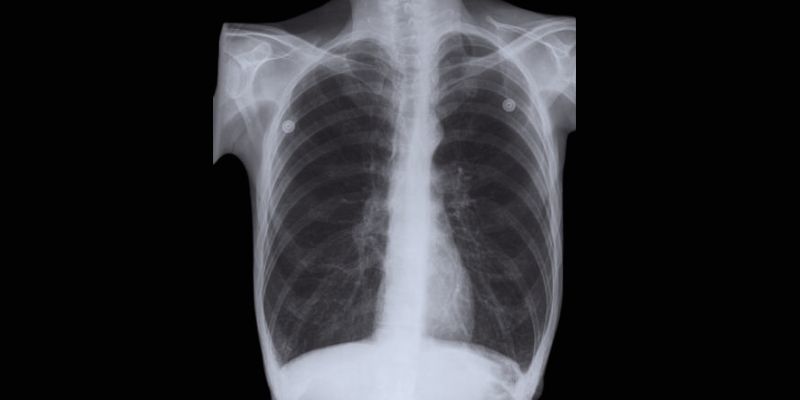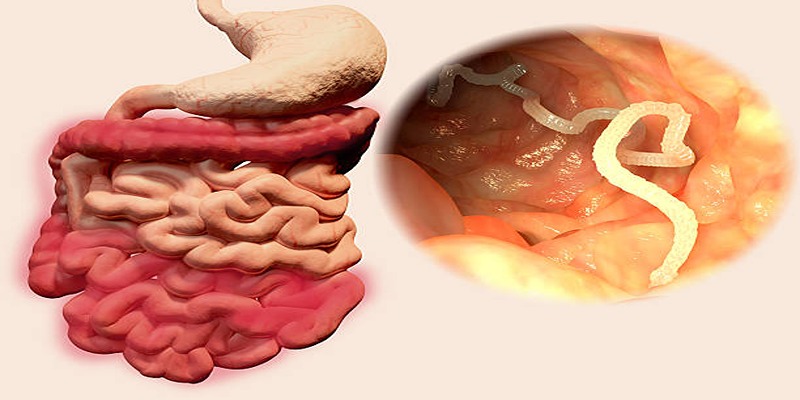The tapeworm diet, a dangerously unconventional weight loss method, involves ingesting tapeworms to limit calorie absorption. While proponents claim it yields rapid results, this practice poses severe health risks. Tapeworm infections can lead to malnutrition, organ damage, and even life-threatening complications, making it a perilous choice that outweighs any perceived benefits.
What Is the Tapeworm Diet?

The tapeworm diet involves the intentional ingestion of tapeworm larvae, which are parasitic organisms that live in the intestines. The theory behind this method is simple but dangerous: the tapeworm feeds off the nutrients from consumed food, resulting in weight loss due to fewer calories.
Despite occasional online buzz, this method is:
- Not medically approved
- Illegal in many countries
- Scientifically unsafe
- Linked to a wide range of complications
How do Tapeworms Affect the Body?
Once ingested, a tapeworm attaches itself to the intestinal lining and begins absorbing nutrients. Some tapeworms can grow to several meters in length, remaining in the digestive tract for extended periods.
They interfere with normal digestive function by:
- Stealing nutrients from food
- Releasing metabolic waste inside the host
- Multiplying and potentially migrating to other organs
Severe Health Risks and Medical Complications:
1. Nutritional Deficiencies
One of the most immediate consequences of a tapeworm infection is malnutrition, as the parasite deprives the body of essential vitamins and minerals.
Common outcomes include:
- Fatigue and weakness due to energy loss
- Iron deficiency increases the risk of anemia
- Low levels of vitamin B12, can affect neurological functions
- Weakened immune response, leaving the body vulnerable to illness
2. Digestive Disorders
Tapeworms can significantly disrupt the gastrointestinal system.
Symptoms may include:
- Persistent abdominal pain
- Bloating, discomfort, and gas
- Nausea, especially after meals
- Irregular bowel movements, including diarrhea or constipation
Over time, these issues can affect hydration levels, appetite, and overall gut health.
3. Unpredictable Weight Fluctuations
Although the diet is promoted as a weight-loss method, the reality is often the opposite. Weight loss may occur initially, but it is typically followed by metabolic imbalance.
Key points:
- The body may enter starvation mode, slowing metabolism
- Appetite can increase to compensate for lost nutrients
- Once the parasite is gone, rapid weight regain is common
This cycle contributes to unhealthy relationships with food and body image.
4. Risk of Internal Infection (Cysticercosis)
In more severe cases, tapeworm larvae can migrate from the intestines to other parts of the body via the bloodstream. This can result in systemic infection, a medical emergency.
Complications include:
- Cysts forming in the brain, liver, or muscles
- Seizures or neurological symptoms
- Inflammation and organ dysfunction
- Vision impairment and headaches
These conditions require long-term medical treatment and, in some cases, surgical intervention.
5. Immune System Disruption
Tapeworms release chemicals that interfere with the host's natural defenses. Over time, this weakens the immune system’s ability to respond to infections and other health threats.
Potential consequences:
- Increased vulnerability to common infections
- Slower healing and recovery times
- Chronic inflammation and fatigue
6. Mental and Emotional Stress
Living with a parasitic infection can take a psychological toll. Even those who intentionally begin the tapeworm diet often experience emotional distress once the reality sets in.
Common psychological effects:
- Heightened anxiety and fear
- Obsessive thoughts about health or food
- Disrupted sleep patterns
- Long-term emotional impact even after treatment
This mental strain often requires counseling or psychological support.
Other Serious Medical Complications:
Beyond the core health concerns, tapeworm infestations can also lead to the following:
- Intestinal Blockage- Large or multiple parasites may obstruct parts of the digestive tract, causing severe abdominal pain and requiring surgical removal.
- Gallbladder Involvement- In rare cases, tapeworms migrate to the bile ducts, affecting bile flow and causing additional gastrointestinal complications.
- Toxic Reactions Upon Parasite Death- When a tapeworm dies naturally or is treated with medication, its remains may trigger toxic or allergic responses in the body, potentially leading to severe inflammation.
No Medical or Scientific Backing:
The tapeworm diet is not supported by any healthcare authority or evidence-based weight management program. It is considered both unsafe and unethical for the following reasons:
- No clinical studies support its effectiveness
- Medical professionals do not recommend this method
- It violates public health and safety laws
- The distribution and sale of tapeworms for ingestion is illegal in many regions
Relying on this practice instead of safe, sustainable methods places individuals at significant risk.
Ethical, Legal, and Social Concerns:

The promotion or use of the tapeworm diet is not just a personal health risk—it’s a public health issue. Tapeworm infections are contagious and can spread through unsanitary conditions.
Key concerns:
- Legal restrictions on parasite distribution: Strict regulations and laws are in place to control the distribution of parasites to prevent misuse and ensure public safety. These measures are designed to protect both individuals and broader communities from potential harm.
- Public health threats in areas with poor sanitation: In regions with inadequate sanitation and hygiene infrastructure, the spread of parasites poses a significant risk to public health.
- Social harm from promoting unsafe fads on digital platforms: The rising influence of online platforms has led to the spread of dangerous trends, including those related to parasite use.
Authorities in many countries have issued warnings or taken action against individuals selling or promoting parasitic products for ingestion.
Safe and Responsible Weight Management Alternatives:
Instead of dangerous shortcuts, individuals should focus on proven strategies for long-term health and weight balance:
- Balanced diet: Focus on eating a variety of nutrient-dense foods, including plenty of fiber-rich fruits and vegetables, lean sources of protein like chicken, fish, or plant-based options, and healthy fats from sources like avocados, nuts, and olive oil.
- Regular physical activity: Incorporate physical exercise that suits your fitness level and interests. This could include activities like brisk walking, jogging, swimming, cycling, or even yoga and stretching exercises.
- Mindful eating: Practice being more aware of how and why you eat. Pay attention to hunger cues, eat slowly, and savor each bite to help prevent overeating.
- Consultation with professionals: Seek guidance from qualified professionals, such as dietitians, nutritionists, or fitness trainers, who can provide personalized plans tailored to your goals and needs.
- Consistency and patience: Focus on long-term habits rather than short-term fixes or extreme measures. Building a healthier lifestyle takes time and effort, so it’s important to stay consistent and give yourself grace as you work toward your goals.
These methods promote lasting health benefits without exposing the body to dangerous parasites.
Conclusion:
The tapeworm diet is a high-risk, low-reward practice that poses threats far greater than any temporary weight reduction. From nutritional deficiencies to organ damage and mental distress, the consequences can be severe and lasting. No weight loss goal is worth sacrificing overall health, safety, or peace of mind. True wellness is achieved through responsible choices, not reckless shortcuts.












